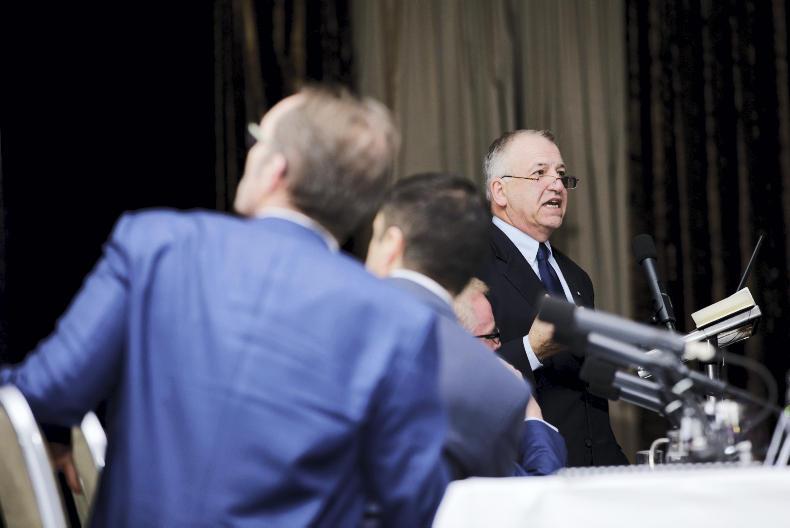Describing climate change as the issue of our time, Teagasc director Professor Gerry Boyle added that it goes beyond Brexit in terms of the potential significance that it has for society and young farmers.
Speaking at the Carrigaline Macra na Feirme Opportunities and Challenges facing Irish Agriculture event on Monday night, he told the attendance there was no time for cynicism on this topic.
“There is a huge opportunity here for young Irish farmers to take on this challenge. They need to own the problem but to also own the solution.”
Policy changes
While urging the attendees to roll up their sleeves and do something about that, he stressed the need for Government policy to evolve to aid farmers in their efforts to reduce emissions.
He said: “Significant mitigation potential exists. I’m not saying they are easy to achieve, but they do exist.”
Implementation of these mitigation measures, however, would require policy changes.
“Policy is going to have to come in behind these different measures and provide incentives and supports to farmers. We have substantially solved the problem on the spreadsheet but we will require added advisory input to encourage farmers that there are options they can implement inside the farm gate.”
He cautioned that while “it’s a natural instinct for young farmers to grow their business, with no mitigation measures, emissions will track livestock numbers, therefore creating a bigger problem”.
Reducing the deficit
He said that if all potential mitigation tools were used, it would be possible to substantially reduce the deficit. Potential for the largest savings presented itself in further adoption of EBI and change in fertiliser use.
Professor Boyle cited the example that if farmers switched from using CAN fertiliser to stabilised Urea, they will reduce emissions of not just GHGs but also of ammonia.
An added bonus for farmers is that any positive change in efficiency is related to a reduction in emissions as well as extra profit.






 This is a subscriber-only article
This is a subscriber-only article










SHARING OPTIONS: